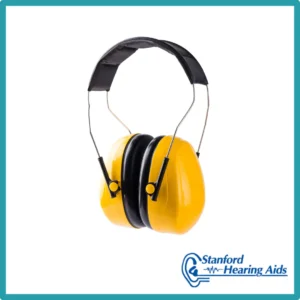A Guide to Ear Care for World Hearing Day
Why Ear and Hearing Care Matters
World Hearing Day 2025 emphasizes the significance of ear and hearing care. Our hearing allows us to communicate, stay aware of our surroundings, and maintain an active social life. Millions of people worldwide experience some level of hearing loss, and the numbers are rising. The good news is that many cases are preventable by adopting safe listening habits, protecting ears from damage, and seeking early intervention for hearing concerns.
Hearing loss can affect people of all ages. Children rely on hearing for language development and learning, while adults need clear hearing for work, relationships, and overall well-being. Without proper ear care, hearing issues can lead to isolation, cognitive decline, and reduced quality of life. By prioritizing hearing health, you can maintain your ability to connect with others and stay engaged in daily activities.
How Your Ears Work
Understanding how your ears function helps you appreciate the importance of caring for them. Your ears serve two primary roles: hearing and balance.
Hearing Process
Hearing begins when sound waves enter the outer ear and travel down the ear canal to reach the eardrum. The eardrum vibrates, sending these vibrations to three small bones in the middle ear: the malleus, incus, and stapes. These bones amplify sound and pass it to the cochlea in the inner ear, where thousands of tiny hair cells transform the vibrations into electrical signals. The auditory nerve then sends these signals to the brain, allowing you to perceive and interpret sound.
Balance and Coordination
Your ears also help with balance. The inner ear contains semicircular canals filled with fluid and sensory hair cells. These structures detect movement and changes in head position, sending information to the brain to maintain balance. When this system is disrupted, dizziness or vertigo may occur. Maintaining good ear health supports both hearing and stability, reducing the risk of falls and coordination problems.

Protecting Your Hearing
Hearing loss can result from noise exposure, infections, aging, or other health conditions. By adopting preventive measures, you can protect your hearing for years to come. Here’s how:
- Use Ear Protection – Prolonged exposure to loud noises, such as concerts, machinery, or gunfire, can damage the sensitive structures in the inner ear. Use earplugs or noise-canceling headphones to minimize damage in loud environments.
- Lower the Volume – Listening to music at high volumes through headphones can cause gradual hearing loss. Follow the 60/60 rule: keep volume below 60% and listen for no more than 60 minutes at a time.
- Take Listening Breaks – If you’re exposed to loud noise for extended periods, step away and give your ears a rest. Even short breaks can prevent long-term damage.
- Keep Ears Dry – Water trapped in the ears can lead to infections, especially for swimmers. Tilt your head to drain water or use specialized earplugs while swimming.
- Avoid Inserting Objects – Cotton swabs, bobby pins, or other objects can push wax deeper, leading to blockages or eardrum damage. Let earwax work its way out naturally or consult a hearing care provider for safe removal.
Recognizing Signs of Hearing Loss
Detecting hearing issues early can prevent further deterioration. Be aware of these common signs:
- Difficulty understanding conversations – Speech may sound muffled, especially in noisy environments.
- Tinnitus (ringing in the ears) – Persistent ringing or buzzing in the ears can indicate damage.
- Increased volume levels – Frequently raising the TV or radio volume may suggest hearing loss.
- Withdrawing from social situations – Avoiding conversations due to hearing difficulties can impact mental health.
If you notice any of these signs, schedule a hearing evaluation as soon as possible. Early intervention can significantly improve hearing health and quality of life.
Discover more about tinnitus awareness.
The Role of Nutrition and Heart Health
Good circulation plays a vital role in maintaining healthy hearing. Staying active and eating well help your circulation. The right foods support the blood flow needed for ear function. Include the following nutrients to help protect your hearing:
- Omega-3 fatty acids – Found in fish like salmon and tuna, omega-3s support ear health and reduce inflammation.
- Antioxidants – Berries, nuts, and dark leafy greens protect the tiny hair cells in the inner ear from damage.
- Magnesium – Found in bananas, avocados, and spinach, magnesium helps prevent noise-induced hearing loss.
- Zinc – Present in shellfish, meat, and legumes, zinc strengthens the immune system and helps prevent ear infections.
A healthy heart also supports good hearing. Cardiovascular diseases can restrict blood flow to the inner ear, leading to hearing problems. Regular exercise, a balanced diet, and stress management all contribute to better heart and ear health.
Find out more about heart and hearing health.

Routine Ear Care Tips
Taking care of your ears should be part of your overall wellness routine. Follow these steps for optimal ear health:
- Clean Your Ears Properly – The ears are self-cleaning, and excessive wax removal can cause irritation. If wax buildup becomes a problem, use a damp washcloth or consult a hearing care provider.
- Monitor Your Hearing Health – Have your hearing tested regularly, especially if you experience ringing, muffled sounds, or discomfort.
- Manage Stress – Chronic stress and anxiety can contribute to tinnitus and ear discomfort. Practice relaxation techniques such as meditation or breathing exercises.
- Stay Hydrated – Proper hydration supports fluid balance in the inner ear, essential for both hearing and balance functions.
Understand more about how dehydration affects hearing.
When to Seek Professional Help
If you experience persistent ear pain, frequent infections, or difficulty hearing, consult a local hearing care provider. Common ear issues that require professional attention include:
- Ear Infections – Bacterial or viral infections can cause pain and temporary hearing loss. If left untreated, infections may lead to complications.
- Tinnitus – Ongoing ringing or buzzing in the ears can indicate an underlying condition that requires evaluation.
- Hearing Loss – Gradual or sudden hearing loss should never be ignored. Early diagnosis can prevent further deterioration and improve communication abilities.
Take Action for Better Hearing
World Hearing Day reminds us to take proactive steps for ear and hearing care. By protecting your hearing, eating well, and scheduling regular checkups, you can maintain good ear health for years to come. If you have concerns about your hearing, contact Stanford Hearing today to schedule an evaluation. Your ears play a crucial role in your well-being—take care of them today!

